Physical Estate & Operations
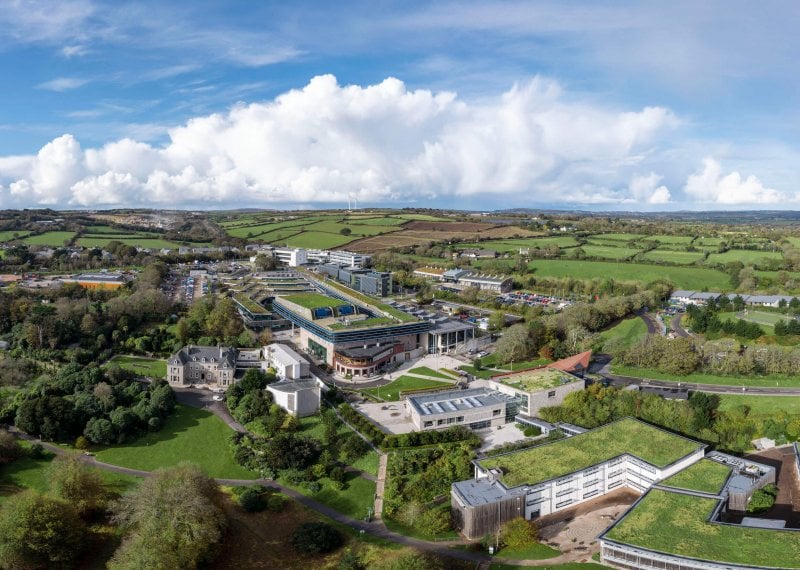
Streamlining our operations and enhancing our environment.
What's covered?
Our carbon net zero vision will be embedded in every area of our operations. As the university for the nexus of creativity and technology, this means leading the way on understanding and mitigating the emissions created by our digital, as well as physical, activities.
We will respond to issues with local and regional salience, aligned to Cornwall’s 2050 Plan. Recognising the unique challenges our rural location presents to tackling sustainability, we will collaborate with partners to deliver new opportunities for a cleaner, greener Cornwall.
Why?
We understand the importance of Falmouth University’s contribution to the fight against the environmental and climate crises. As an anchor institution for our region, we must lead from the front, setting an example by minimising the impact of our estates and operations.
What are scope 1, 2 and 3 carbon emissions?
Carbon emissions that the university is directly responsible for. The carbon produced by the radiators in our campus buildings, for example, is a direct result of the University choosing to switch the heating on.
Carbon emissions that are related offsite as a result of the University’s electricity use. For example, every time the University turns the lights on, we are asking our energy provider to produced electricity for us.
Whenever we procure something, we create a lengthy chain of energy consumption – our Scope 3 emissions. This includes: purchased good and services, waste, business travel, employee commuting, capital goods and services, transportation and distribution.
Our targets
Scope 1 & 2 emissions (associated with our direct energy use):
-
50
%
By 2025
-
75
%
By 2030
2040
Carbon neutral
The above targets form the basis of the University’s Net Zero Carbon Management Programme for Scope 1 and Scope 2 emissions.
The targets are measured against the baseline statistics that were established in 2005/06, and were developed in partnership with the University of Exeter, ensuring the optimisation of shared campus projects and supporting FX Plus to maximise carbon reduction across our campuses.
FX Plus, our on-campus service delivery partner, are leading our work to make day-to-day campus operations more sustainable.
Scope 3 Emissions (associated with our indirect activities):
-
50
%
by 2030
-
100
%
by 2050
Our Wider Physical Estate & Operations Targets:
-
We will demonstrate sustainable operations across all our estates and operations activity
-
We will incorporate digital decarbonisation into our net zero strategy
-
We will employ internal expertise to apply creative and design thinking to explore new ideas that will reduce waste and drive the circular economy on campus
-
We will develop an ethical investment policy with sustainability as the key commitment
Responding to local sustainability priorities, we will:
- Remove single use plastics in our commercial operations to reduce our contribution to ocean plastic and support ocean health
- Invest in our campus grounds to contribute to local biodiversity
- Support local, sustainable businesses through local procurement
How are we going to do it?
A Reduction-First Approach
The choice of decarbonisation pathways is extensive, including implementing initiatives to reduce carbon emissions, carbon offsetting and purchasing green energy.
In our Net Zero Carbon Management Programme, initiatives to reduce carbon emissions have been prioritised because there is no substitute for primary carbon reduction: carbon emissions that are not generated in the first place never have to be offset.
Sustainable Procurement
The Procurement team has developed a Responsible Procurement Strategy, supported by a Responsible Procurement Policy and code of practice document to support our suppliers and stakeholders in understanding our objectives and long-term goals.
We’ve also launched a Responsible Procurement Supplier Engagement Tool to ensure that goods and services are sourced in a sustainable and efficient way. The tool means that we can also work alongside our existing suppliers to help them become more sustainable too.
Sustainable Travel
Our Sustainable Commuting Travel Plan gives us guidance to understand commuting travel modes that are high and low in emissions. Based on annual surveys we now circulate to students and staff, we are gaining better insights in terms of the main modes of transport.
Furthermore, this plan is split across three key pillars: i) infrastructure improvement, ii) service level improvement and iii) behaviour change and communications. Our focus is supporting the infrastructure and services.
What we've done so far
Through our FX Plus partnership, we’ve established a series of operational work streams to embed sustainability across campus estate operations. These streams cover: energy, procurement, catering and retail, biodiversity, waste & recycling, communications, travel, environmental compliance, water and digitisation.
Annual scope 1, 2 & 3 carbon emission profiles are developed in alignment with the Standardised Carbon Emission Framework (EAUC, 2022).
- Energy decarbonisation: This academic year Falmouth University achieved a 5.5% reduction in our absolute scope 1 and 2 emissions (AY 2022/2023 2,247.5 tCO2e vs AY 2023/2024 2,127.28 tCO2e).
- Across both campuses, our estates team have been working on program delivery of solar PCV installation on buildings, improved sub-metering enhancements, heating, ventilation and air conditioning optimisation and LED lighting upgrades in buildings.
Sustainable Procurement:
- Continuation and development of our Responsible Procurement Strategy focusing on a triple bottom line approach: environmental, social and local economic factors.
- 76% of our core suppliers have committed to carbon reduction strategy. 90% of core suppliers have now committed to a social value strategy.
- 20% of scoring in all tenders allocated to carbon reduction and social value.
- 90% of our core suppliers have now adopted the NetPositive supplier engagement platform. This is where they create their own sustainability action plan. The target is for 100% of core suppliers to sign up by 2025.
- 37% of our overall supply chain is based in Cornwall and Devon. 87% of our catering and retail suppliers are based in Cornwall and Devon.
- The Sustainability Café achieved accreditation from the Vegetarian Society for producing a fully vegetarian and vegan menu offering.
Sustainable Travel:
- Achieved the Gold award administered by the Cycle Friendly Employer award program. The gold award is the highest award administered and recognises the facilities and services employers provide to encourage and support cycling/active travel.
- Annual FX Plus student and staff travel commuting survey: This year we collected 703 student and staff responses across campus based on commuting travel preferences, behaviours and insights. This was the highest survey result we have achieved so far. This information informs decision making across FX Plus and the university where to achieve continuous improvement.
- 2030 Sustainable Commuting Travel Plan: came to the final stages of finalising the travel strategy for FX Plus. The plan is essentially focused on three key pillars: i) infrastructure improvement, ii) service level improvement and iii) behaviour change and communications.
New Waste & Recycling Initiatives:
- Expansion of Tetra Pak recycling – 14,000 cartons were recycled in 2023-2024.
- We launched a ‘Bin it to Win it’ campaign with ‘smart segregation’ QR codes aimed at incentivising improved recycling, with a £1,000 prize for disposing of waste correctly. We were the first university to launch such an initiative.
- A medicinal blister pack recycling scheme was introduced on campus. This waste is upcycled into products like modular furniture and hoarding boards.
New Campus Biodiversity Initiatives:
- Received the Green Flag award for the seventh consecutive year. The Green Flag Award is administered by Keep Britain Tidy under licence from the Ministry of Housing, Communities & Local Government.
- We doubled the number of wildflower plants planted across Penryn Campus to 2,320.
- Continued our relaxed mowing regime across campuses, which helps continue support for wildflower spaces and wider biodiversity benefits.
Explore our sustainability themes
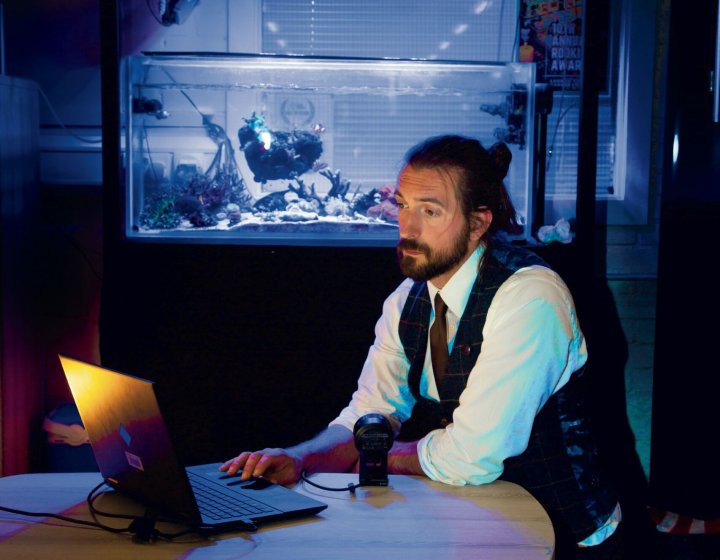
Sustainability | Research & Knowledge Exchange
We are committed to upholding sustainable research practices, undertaking sustainability-related res...
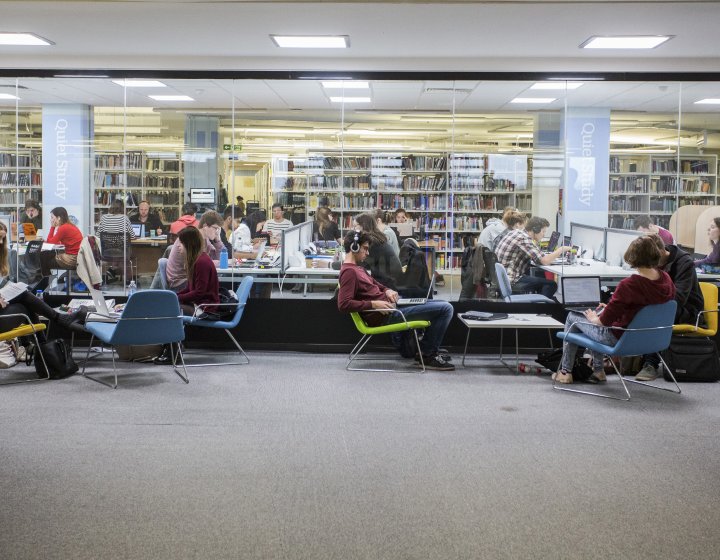
Learning & Teaching
Empowering our students with knowledge and skills to make a positive impact, through applying creati...
News & stories
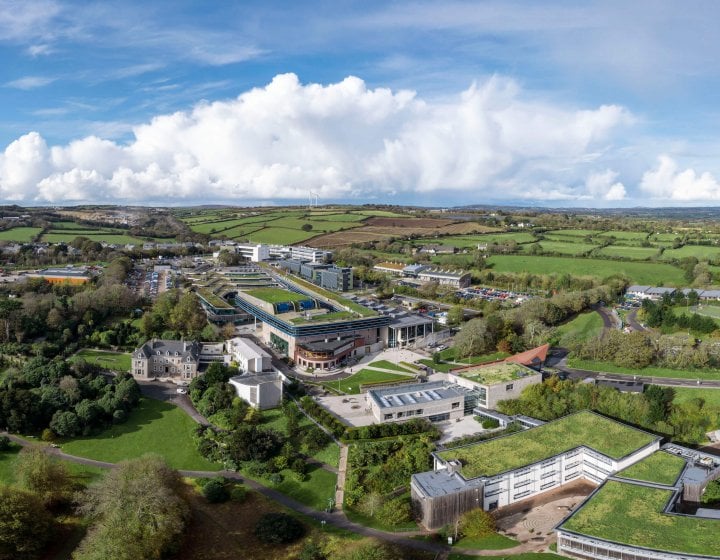
The Future Is Green: Sustainability-driven business events begin
25 October 2024
Last week, Falmouth University proudly hosted the first in-person training day for The Future is Gr...
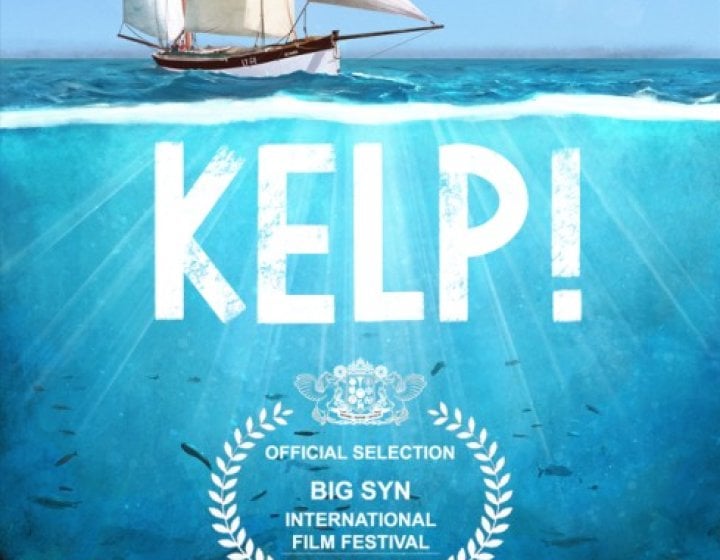
‘KELP!’ wins Best UK Short Documentary at Big Syn International Film Festival 2023
20 November 2023
KELP!, a film directed by Marine & Natural Photography BA(Hons) graduate Caylon La Mantia and senior...

'Swap Shop' supports our campus community and promotes sustainability
07 September 2023
Rehome donated items through our campus Swap Shop initiative.
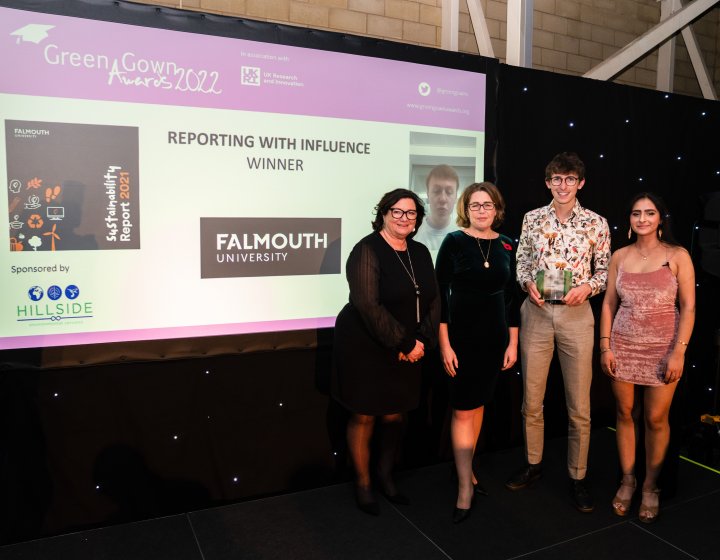
Falmouth University shortlisted at prestigious sustainability awards
03 August 2023
Falmouth University has been announced as a finalist at the 2023 Green Gown Awards UK and Ireland un...
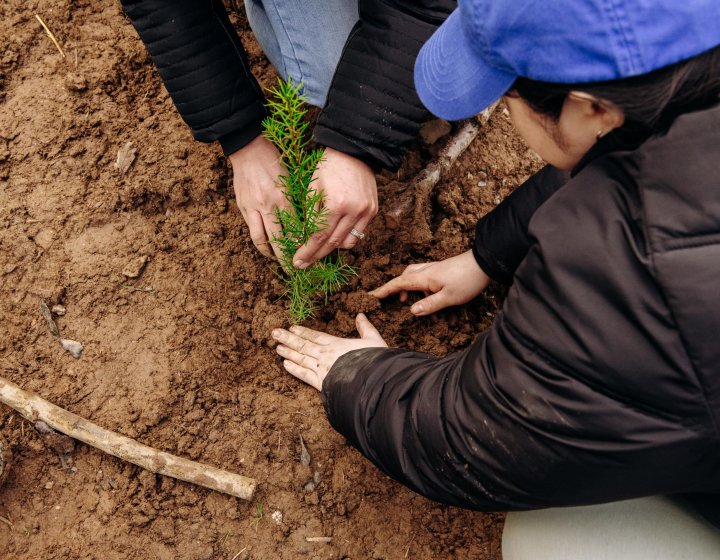
Falmouth University community plants 500 trees in partnership with PlantOne
21 June 2023
Through its partnerhsip with PlantOne, Falmouth University has planted 500 trees at the Trefusis Est...
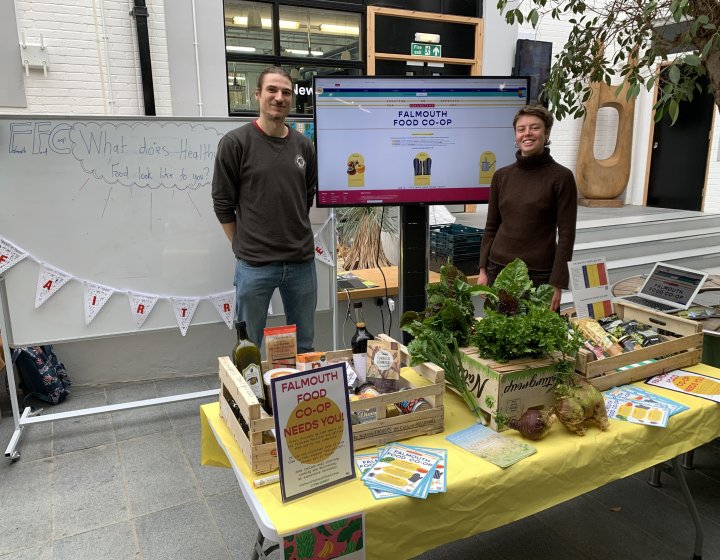
Fairtrade Fortnight 2023 at Falmouth University
25 May 2023
Here's how Falmouth engaged with Fairtrade Fortnight 2023.
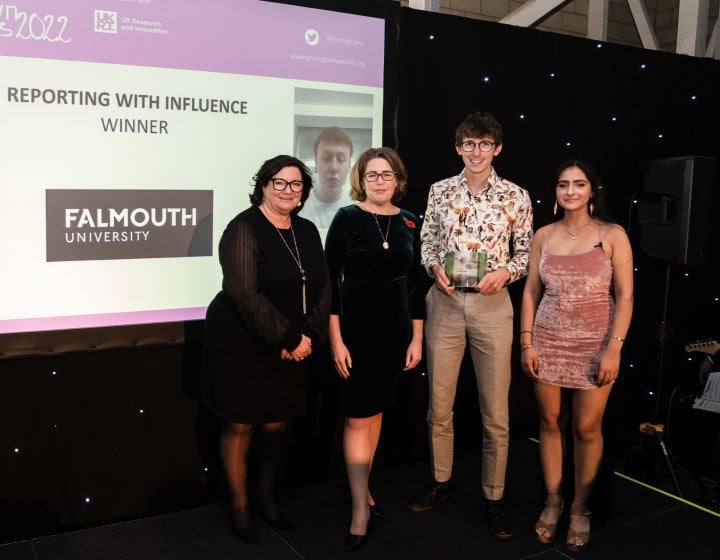
Win for Falmouth University at sustainability awards
10 November 2022
Falmouth University is delighted to have won the Green Gown Award for ‘Reporting with Influence’...

Wild Voices: The "sound of extinction" by Tom Hull
12 August 2022
This piece was written by Tom Hull, a researcher at Falmouth University. He is a specialist in wild ...
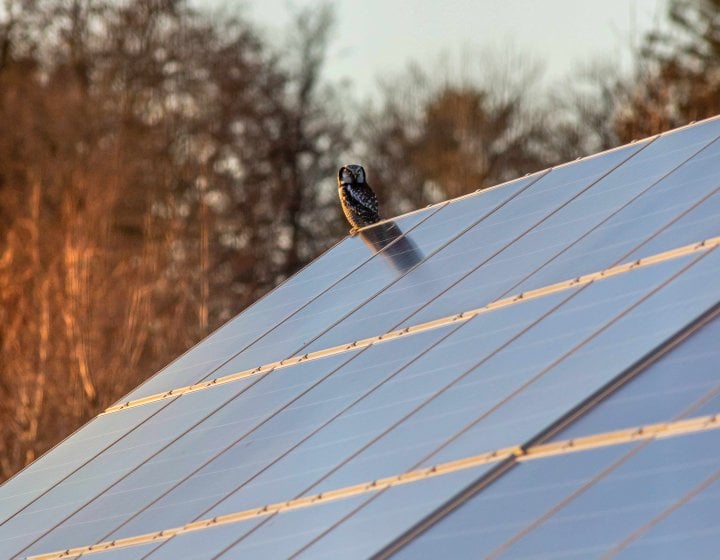
Falmouth increases solar panel presence on campus
10 August 2022
Falmouth University are significantly increasing the amount of solar panels on roofs at Penryn Campu...
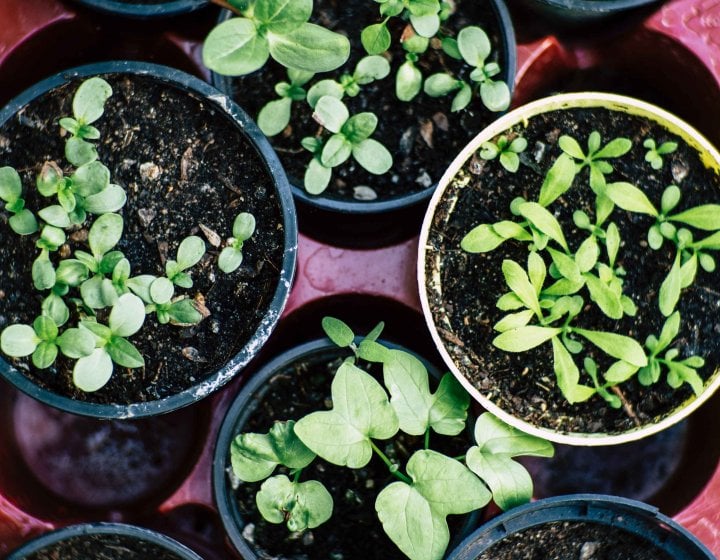
Plant partnership launched with Cornish company
10 August 2022
Falmouth University has partnered with Rocket Gardens, a Gweek-based mail order company supplying pl...
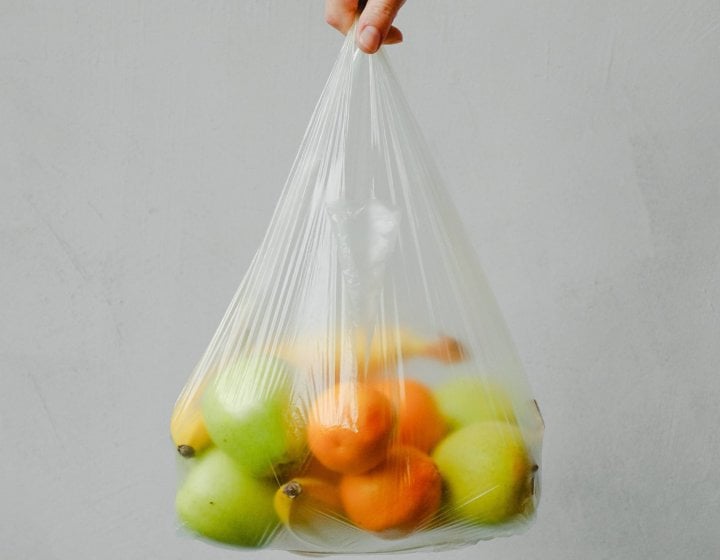
Falmouth conducts food waste separation trial
10 August 2022
Falmouth University have launched a pilot project to reduce more waste on our campuses by separating...
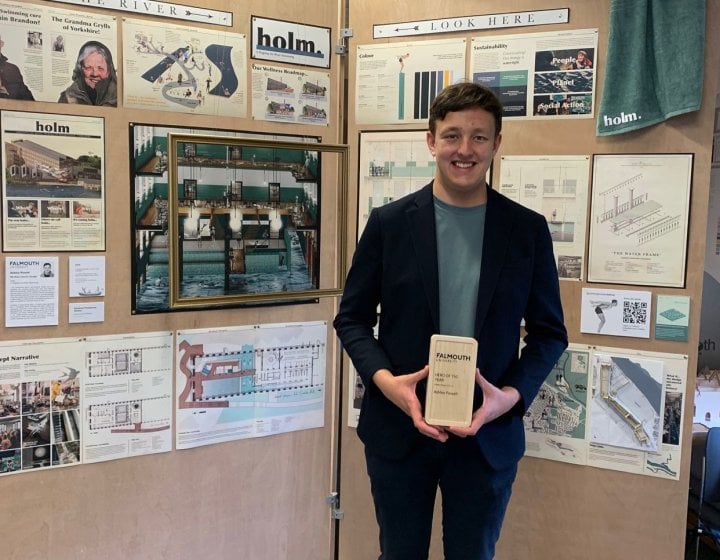
Student takes home sustainability award at Interior Educators 2022
02 August 2022
BA(Hons) Interior Design student Ashley Powell has seen his shortlisted project 'holm' rise to ...
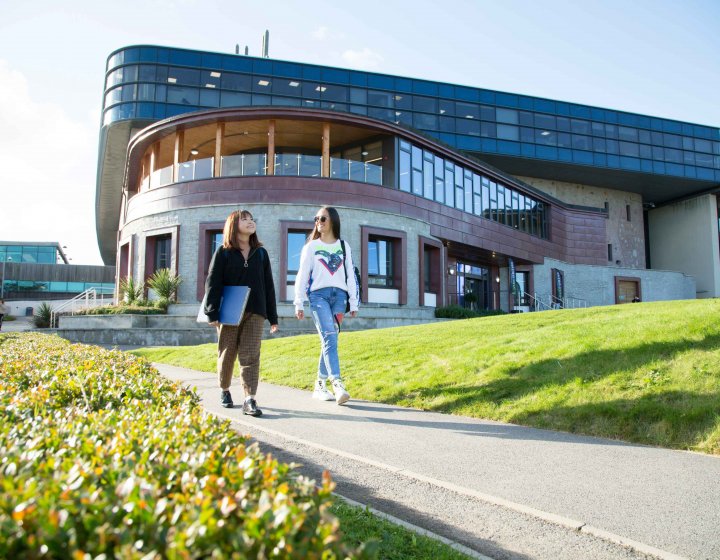
Falmouth University shortlisted for two Green Gown sustainability awards
22 July 2022
Falmouth University has been shortlisted for two prestigious sustainability awards. In associatio...
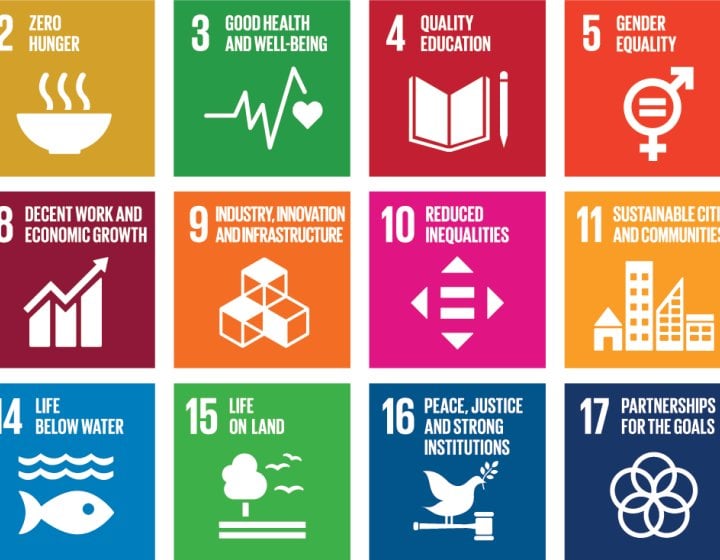
Falmouth ranked as Top 10 Institution by 2022 SDG Teach In
06 May 2022
For the second year in a row, Falmouth University's engagement with the Sustainable Development...
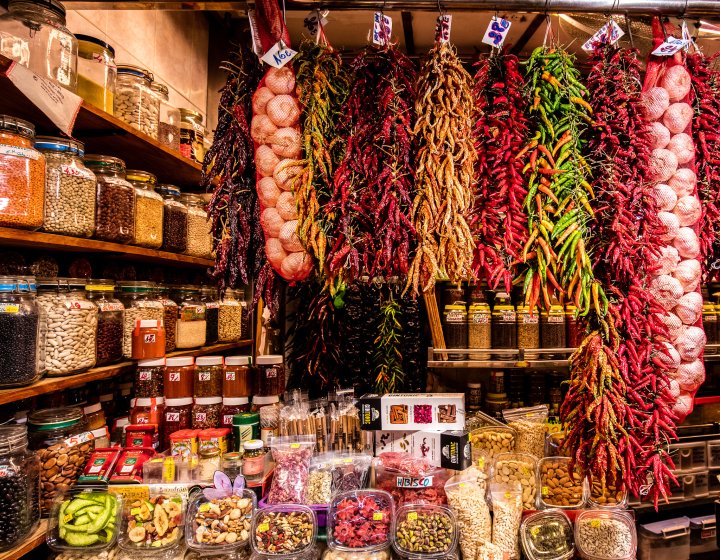
Top 5 eco-friendly shops in Falmouth & Penryn
22 April 2022
This Earth Day is all about empowering people to invest in our world. It might be difficult to s...

Falmouth rolls out community furniture donations
12 April 2022
Community organisations have benefitted from furniture donations from Falmouth's campuses as part of...

Falmouth gears up for Sustainability Week 2022
17 March 2022
Sustainability Week returns on 21 March with a packed line-up of eco-orientated events to help stude...
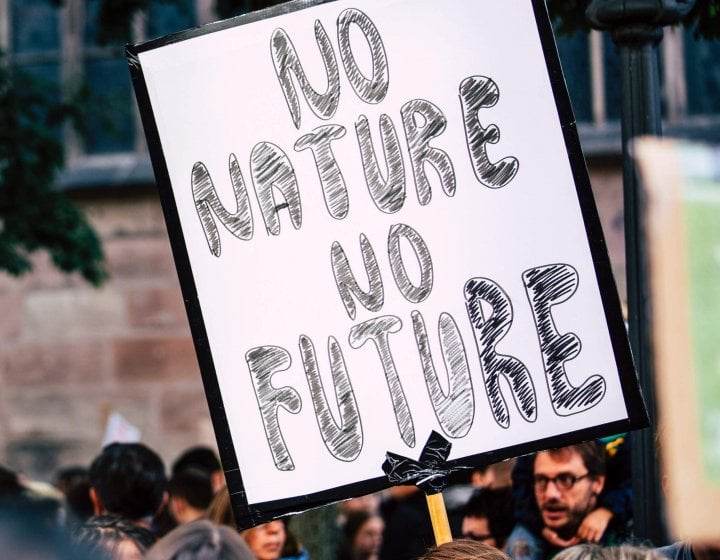
Bringing underrepresented voices to the front line of the climate crisis
10 March 2022
Pauline Blanchett, recipient of Falmouth University’s Reporting Earth bursary, is commissioning fe...

Falmouth joins the Fashion Declares movement
04 February 2022
Falmouth’s Fashion & Textiles Institute has joined forces with key leaders across the fashion ...
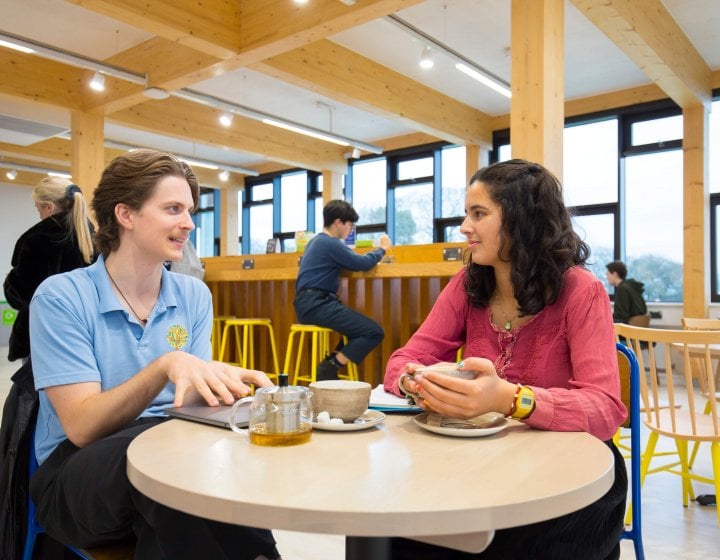
The Sustainability Café announces revamped veggie menu
28 January 2022
As a result of student feedback, we are pleased to announce that the Sustainability Café menu will ...